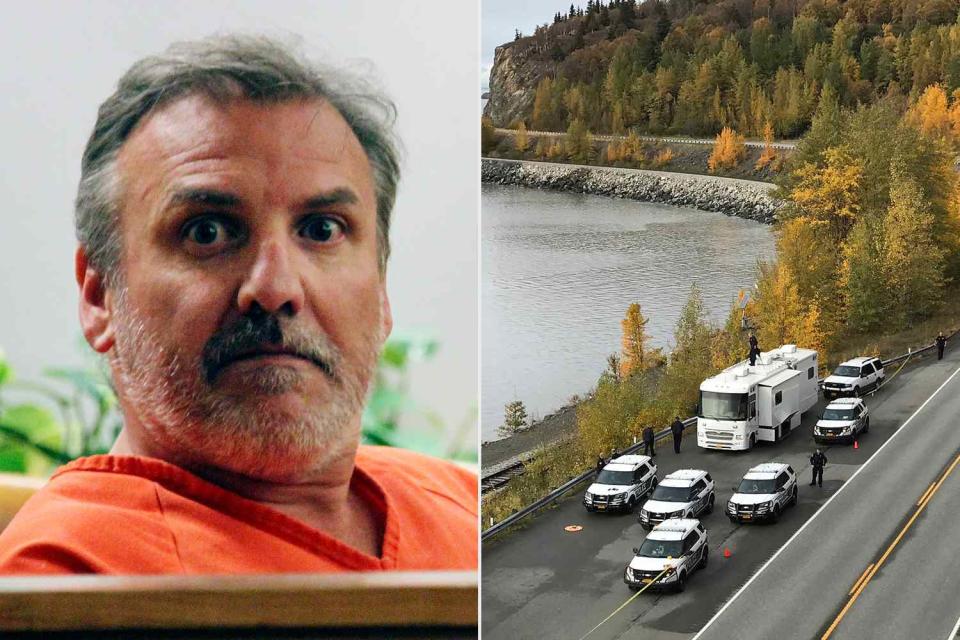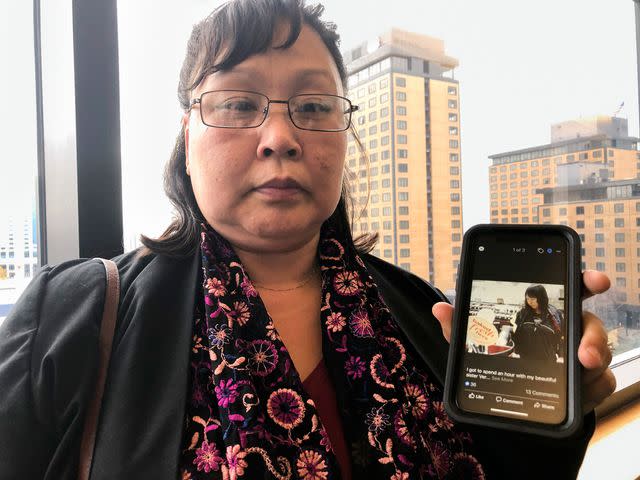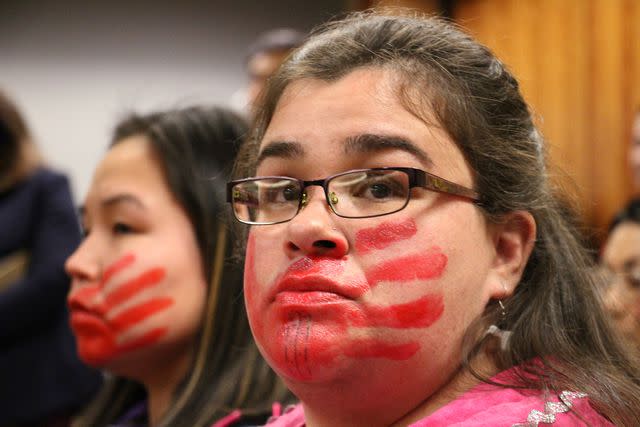Alaska Serial Killer Secretly Records Murders: ‘In My Movies, Everybody Dies’
Inside the Memory Card Murders that took the lives of Alaska Natives Kathleen Jo Henry and Veronica Abouchuk

Mark Thiessen/AP Photo; Bill Roth/Anchorage Daily News via AP
Brian SmithWith nothing else to do for the evening, Valerie Casler was hanging out near a grocery store in Anchorage, Alaska, on Sept. 19, 2019, when a man with a foreign accent pulled up in a black Ford Ranger and asked her if she wanted to go for a drive.
Casler, who was homeless and addicted to drugs at the time, climbed into the truck for what became an hours-long cruise through the city streets. When the driver pulled over at a gas station and went inside to withdraw cash, she reached across the center console and pocketed his phone.
Later that night, back at the tent where she was staying, she opened the phone and was horrified by what she discovered: dozens of graphic photos and videos of a naked woman being beaten and strangled in a hotel room that looked familiar to Casler.
“I had been up drinking and getting high for like two weeks straight,” Casler, 52, testified about seeing the images in an Anchorage courtroom on Feb. 7. “And then I turned it on, and I was sober in less than five minutes.”
Casler downloaded the disturbing images on a memory card, which she later admitted she had stolen, and labeled it “Homicide at midtown Marriott.” Ten days later, she turned the data over to police, unleashing an investigation that led to the arrest of a South African immigrant on suspicion of murdering two Alaska Native women.
Investigators had analyzed the footage of a man boasting and taunting his victim. “In my movies,” he says in one chilling sequence, “everyone dies. What are my followers going to think of you? People need to know when they are being serial-killed.”
Want to keep up with the latest crime coverage? Sign up for PEOPLE's free True Crime newsletter for breaking crime news, ongoing trial coverage and details of intriguing unsolved cases.
Authorities say the face of the assailant who made the video is never seen on camera. But in a lucky break, one of the detectives who viewed the footage instantly recognized the man’s distinctive accent—as well as the black pickup truck that Casler told police he had driven—as belonging to a person involved, but never charged, in a previous case: South Africa-born Brian Smith, who had recently become a U.S. citizen.

Kathleen Henry/Facebook; Anchorage Police Department/Facebook
Kathleen Jo Henry; Veronica AbouchukDuring an eight-hour police interrogation on Oct. 8, 2019, Smith, who was arrested at Anchorage airport as he returned from a vacation in Washington, D.C., initially claimed that he didn’t remember the violent incident seen on the video but eventually admitted that, after a night of drinking, he found the body of a woman later identified as Kathleen Jo Henry, 30, in the bed of his truck.
After a bathroom break—during which Smith told a trooper who escorted him that he was “going to make you guys famous”—Smith confessed to murdering another woman he had met on the streets of Anchorage, 52-year-old Veronica Abouchuk, who, like Henry, had experienced homelessness and addiction. And in a further shocking admission, Smith told police that he took a photo of himself fondling the woman’s corpse and shared it with a female friend.
For more on the Alaska Murder case, subscribe now to PEOPLE, or pick up this week's issue, on newsstands Friday.

AP Photo/Mark Thiessen
Veronica Abouchuk's sister Rena SappAfter a two-and-a-half week trial that was delayed by the COVID lockdown, a jury earlier this year found Smith, 53, guilty of 14 crimes, including first-degree murder, sexual assault, tampering with evidence and misconduct involving a corpse in the deaths of Henry and Abouchuk.
“The criminal justice system does not always provide all of the answers, but we believe that a just verdict has been reached,” Anchorage District Attorney Brittany Dunlop and Deputy District Attorney Heather Nobrega told PEOPLE after the Feb. 22 conviction. “Smith will be held accountable for heinous crimes against some of the most vulnerable people in our community. They were kind and unique women, loved and valued by their families.”
Smith, who faces a mandatory 99 years in prison, is scheduled for sentencing in July.
The women lost—Abouchuk and Henry—are both greatly missed by their communities. A mother of four, Abouchuk was raised in the tiny village of St. Michael, Alaska, before moving to Anchorage. “She was a wonderful woman. She had a really big heart, and not a mean bone in her body,” says her older sister Margaret Lestenkof, 62, who often left her two daughters in Abouchuk’s care when they were younger. Despite sometimes sleeping on the street, Abouchuk kept in contact with friends and family and regularly showed up unannounced at her sister’s house on holidays.

AP Photo/Mark Thiessen
activist Natasha GamacheBut on Thanksgiving of 2018 she was a no-show. “That was weird,” recalls Lestenkof.
Authorities say Smith—a maintenance worker at an Anchorage hotel who had moved to Alaska in 2014 to marry a woman he had met online, Stephanie Bissland, 73—met Abouchuk and offered her “warm food and a warm place to sleep” while his wife out of town in August of 2018.
Back at his house, Smith told police, he asked Abouchuk to take a shower. When she
refused, Smith retrieved a .22 pistol from his garage and shot her in the head, he said. Police searched his house and found the gun as well as a thumb drive with deleted, but recoverable, video clips of Abouchuk before and after her death. Her decomposed head was found beside a highway by a pair of mushroom pickers on April 10, 2019, and identified with dental records.
Months later, Henry—who grew up in Eek, Alaska, earned a G.E.D. and was known to write poetry—was anticipating a brief respite from homelessness when she joined Smith for a stay at a midtown Anchorage hotel on Sept. 4, 2019. At Smith’s trial, jurors were shown hard-to-watch footage of Smith torturing her there.
“Just take it. You live. You die...you live. You die,’ ” he said in the video as he alternated between applying pressure to Smith’s throat and then releasing it. A coroner later determined her cause of death to be asphyxiation by strangulation.
“I’m glad Smith was convicted and can’t ever hurt another woman,” says Natasha Gamache, an advocate for Native Alaska women, who attended a hearing in Smith’s case to show support for the victims’ families. “I’m glad the criminal justice system here got it right, because they frequently get it wrong. Native Alaska women are considered invisible—but we’re not.”
For more People news, make sure to sign up for our newsletter!
Read the original article on People.

